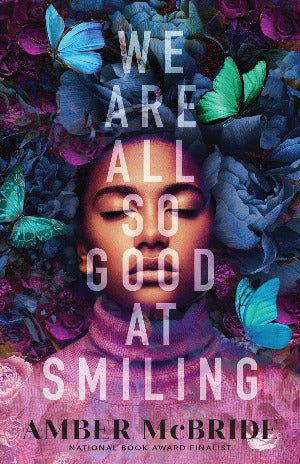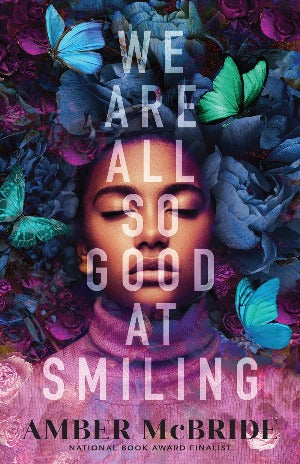Stories Like Me
We Are All So Good at Smiling
We Are All So Good at Smiling
Couldn't load pickup availability
paperback
Synopsis
They Both Die at the End meets The Bell Jar in this haunting, beautiful YA novel in verse about clinical depression and healing from trauma, from National Book Award Finalist Amber McBride.
Whimsy is back in the hospital for treatment of clinical depression. When she meets a boy named Faerry, she recognizes that they both have magic in the marrow of their bones. And when Faerry and his family move to the same street, the two start to realize that their lifelines may have twined and untwined many times before.
They are both terrified of the forest at the end of Marsh Creek Lane.
The Forest whispers to Whimsy. The Forest might hold the answers to the part of Faerry he feels is missing. They discover the Forest holds monsters, fairy tales, and pain that they have both been running from for eleven years.
Author
Amber McBride estimates she reads about 100 books a year. Her work has been published in literary magazines including Ploughshares and Provincetown Arts. Her debut young adult novel, Me (Moth) was a finalist for the National Book Award, and won the 2022 Coretta Scott King/John Steptoe Award for New Talent, among many other accolades. She is a professor of creative writing at University of Virginia, and lives in Charlottesville, Virgina.
Praise
A 2024 Texas Library Association TAYSHAS Selection
A Common Sense Media Best Media of 2023 Selection
A Kirkus Reviews Best Book of 2023
A School Library Journal Best Book of 2023
"Stunning... Readers will revel in the depth of Whimsy and Faerry’s relationship, all the while finding solace and relief in the calculated messiness of their search for wholeness." —Booklist, starred review
"This phenomenal novel-in-verse transports readers into an impassioned tale of heartache and hope that belongs on every bookshelf serving teens." —School Library Journal, starred review
"Raw and poignant and promising hope, even when it seems there is no way out." —Shelf Awareness, starred review
"The choice of verse to tell this absorbing story is a strong one; readers are drawn along by the intense and vivid imagery, and the depictions of clinical depression, guilt, and grief are visceral." —Kirkus Reviews, starred review
"McBride makes exceptional use of the verse novel format, with some poems reading almost as detailed and descriptive prose, while other entries are just a few judiciously chosen lines that make readers slow down and work a bit to parse out full meaning." —BCCB, starred review
Product Details
Share


